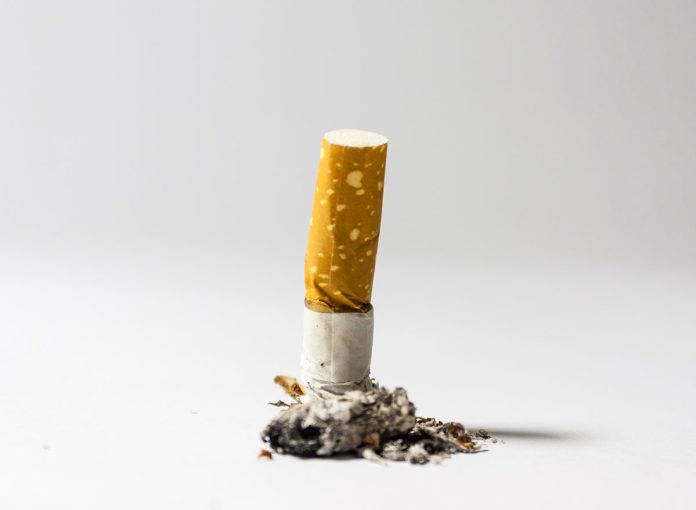Quitting smoking is no easy task, especially if periodically reaching for a cigarette is a part of your daily routine. Those who are able to quit often report one unfavorable side effect: weight gain.
Let’s set the record straight—smoking cessation is the best move for your overall health, despite any undesirable side effects. According to the Centers for Disease Control and Prevention (CDC), quitting smoking can greatly reduce the risk of developing related diseases, including chronic obstructive pulmonary disease (COPD) and cardiovascular diseases.
RELATED: 5 New Facts About Heart Disease Prevention You Need to Know Right Now
Still, if you find that you’re gaining weight after ditching packs of cigarettes for good, know that you’re not alone. There’s also science to back up why this is happening to you. The findings from a recent study published in the journal, Drug and Alcohol Dependence suggest that your brain could be the culprit for craving more processed comfort foods, as they may fill a void that nicotine provided.
“We looked at whether or not acute nicotine withdrawal increases the intake of junk food—high in salt, fat, and sugar—and how the stress-relieving receptors of the opioid system are involved,” said study author Mustafa al’Absi, Ph.D., a licensed psychologist and professor in the Department of Family Medicine and Biobehavioral Health at the University of Minnesota Medical School, Duluth Campus, in a statement.
Researchers looked at a group of smokers and non-smokers between the ages of 18 and 75. All of the participants were instructed to quit smoking for a 24-hour period. They were also given either 50 milligrams of naltrexone (a drug commonly used to treat opioid use disorder and alcohol use disorder) or a placebo. The researchers noted that the reason for the drug was to help normalize the calorie intake of smokers to a level that was in line with the group of nonsmokers.
Participants were then asked to choose from a selection of snacks, which consisted of both nutritious and unhealthy options. The study revealed that smokers who weren’t given the drug were more likely to reach for the unhealthy snack options compared to the nonsmokers in the group.
“The study’s findings may be related to the use of food, especially those high in calories, to cope with the negative effect and distress that characterizes the feelings people experience during smoking withdrawal,” al’Absi said.
He concluded that the results from the preclinical and clinical research show that stress levels can increase a person’s liking for foods that are both high in fat and sugar. Other research has indicated that eating junk food can cause an abrupt release of dopamine in the brain similar to drugs like nicotine.
So, if you recently quit smoking and have found that you’ve been craving more sweets and fatty foods as of late, know that you’re not crazy—there’s a very real reason for it. To help you consciously make better food decisions, be sure to read I’m an RD, and This Is The One Thing You Crave When You Give Up Alcohol for healthy sugar swaps. Then, don’t forget to sign up for our newsletter!


























